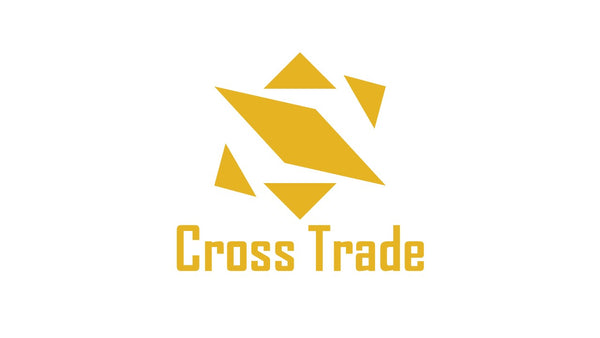Here's a summary of what items are considered ethical
I'm sure you've all noticed that in recent years, there has been growing interest in the impact our consumption behavior has on the global environment and society. According to the Consumer Affairs Agency's "Special Feature: Green Consumer Behavior," there seems to be a particularly high trend of interest in "garbage issues," "global warming," and "marine plastic." It's still only July, but the many days of sweltering heat have made me personally aware of global warming.

Today's topic is ethical, which means "ethical" and refers to things that are kind and considerate to society and the earth.
There is a demand for more responsible consumption, not just buying "good products," but also considering the manufacturing process and producers behind them.

So what kind of items are ethical? We'll introduce a wide range of ethical items, categorized by category . We've compiled a list ranging from items that are easy to incorporate into your daily life to items you might choose for special occasions.
Ethical Fashion and Apparel
Organic cotton items
Apparel items that emphasize fair trade, organic cotton, and sustainability are gaining attention. Organic cotton, grown without chemical fertilizers or pesticides, has a low environmental impact and is gentle on the skin.
・Tops (T-shirts, shirts, blouses) ・Dresses, skirts ・Denim products ・Undergarments ・Knit products

Photo: Organic cotton French sleeve top
Natural and recycled fiber items
There are an increasing number of items made from environmentally friendly materials, such as clothing and bags made from hemp, a natural fiber that is gentle on the body.
・Hemp clothing ・Linen products ・Tencel (recycled fiber) items ・Bamboo fiber products

Photo: Handwoven linen organic cotton stole
Ethical Bags and Accessories
Upcycled and recycled bags
Bags made from upcycled fabric scraps and accessories made from recycled materials are popular.
・Upcycled tote bags ・Backpacks made from recycled materials ・Shoulder bags ・Wallets, card cases ・Accessories

Photo (source): RePLAYER™ -Flecon Tote Bag
Fairtrade certified accessories
Also noteworthy are the accessories offered by brands that offer not only apparel items but also miscellaneous goods and food.
・Natural stone accessories ・Wooden and bamboo accessories ・Handmade metal products ・Eco-friendly packaging ・Accessories made from upcycled materials (aluminum, cotton, etc.)

Photo: Maro Designs Upcycled Aluminum Square Earrings
African goods and ethical aspects
African goods as traditional crafts
African goods contain many ethical elements, so it's important to keep an eye on the latest information, with sophisticated products being created by young African designers and craftsmen.
・African prints (kanga, kitenge, Ankara, pagne, adire, etc.) ・Handwoven baskets ・Wood carving ornaments ・Ceramics and earthenware products ・Musical instruments (djembe, kalimba, etc.)

Photo: Kangarui Double Shopper Brownish
African products supported through fair trade
As a fair trade gift set that works to achieve the SDGs, products that support producers in Africa are attracting attention.
・Fair trade coffee ・Spices and tea ・Handmade textiles ・Artworks (Tinga Tinga art, etc.) ・Products that combine traditional Japanese and African techniques
 Photo: Tinga Tinga Art (Source: Wikipedia)
Photo: Tinga Tinga Art (Source: Wikipedia)
Ethical lifestyle goods
Environmentally friendly everyday items
There are plenty of ethical options for everyday items too.
・Bamboo toothbrush ・Beeswax wrap (for food storage) ・Stainless steel straw ・Organic cotton towel ・Natural sponge
 Photo: Beeswax wrap (Source: ELEMINIST website (https://eleminist.com/article/1993)
Photo: Beeswax wrap (Source: ELEMINIST website (https://eleminist.com/article/1993)
Long-lasting quality items
Just like fashion, which is meant to be worn for a long time and cherished, rather than being disposable, people want high-quality miscellaneous goods that can be used for a long time.
・Durable tableware ・Repairable furniture ・Interior goods made from natural materials ・Crafts made using traditional methods
Ethical cosmetics and skincare
Certified organic cosmetics
Cosmetics that avoid synthetic chemicals and use natural ingredients are popular.
Certified organic skincare Natural makeup Products in eco-friendly packaging Products not tested on animals 
Photo: Ecocert Certified Skin Water (Source: Pax Naturon Online Store https://shop.paxnaturon.com/products/detail/415?srsltid=AfmBOooLOKorWNCzlWn6ODLMVjjbm5uNtx6w8IVFzyvqN4iWQPPnabG8)
Ethical food and beverage products
Fairtrade Certified Food
There are foods that are certified by fair trade organizations that are endorsed by the World Fair Trade Federation.
・Fair trade coffee and tea ・Organic seasonings ・Additive-free and natural foods ・Locally produced ingredients
Points to consider when choosing ethical products
Check the certification mark
・Fair trade certification ・Organic certification ・Recycled material mark ・Certification that no animal testing has been conducted
Transparency in the manufacturing process
・Protecting the working environment of producers ・Manufacturing methods with minimal environmental impact ・Contribution to local communities ・Transparency of the supply chain
Long-lasting quality
We need to move away from mass production and mass disposal. It's important to choose a piece of clothing that you will want to cherish forever, rather than just buying it for the sake of it.
Ethical items found at Cross Trade
Cross Trade offers a carefully selected selection of items that incorporate these ethical elements, including sisal bags that support local artisanal techniques through African goods, bags and slippers made from fabric sourced in impoverished areas, and apparel items such as T-shirts made from organic cotton.

By purchasing products selected based on the spirit of fair trade, you can contribute to improving the lives of producers and developing local communities. In addition, products made using traditional techniques (sisal bags, mochilas , etc.) are exquisite pieces that exude a warmth and individuality that cannot be found in machine-made products.

summary
Ethical products have the power to change the world for the better with just one choice. Ethical options are becoming more widespread in a variety of fields, from fashion to everyday items.
What I want to convey on this page is that in the coming age, people will want products that are not only good for themselves, but also good for others, so when making your purchases, you should consider the process by which the product is made and its impact on society. Why not start living an ethical life that is unique to you, while being aware that each and every purchase contributes to environmental protection and society?
Let's start with small steps and work together towards a sustainable future.
Representative Kaoru Tsuji
